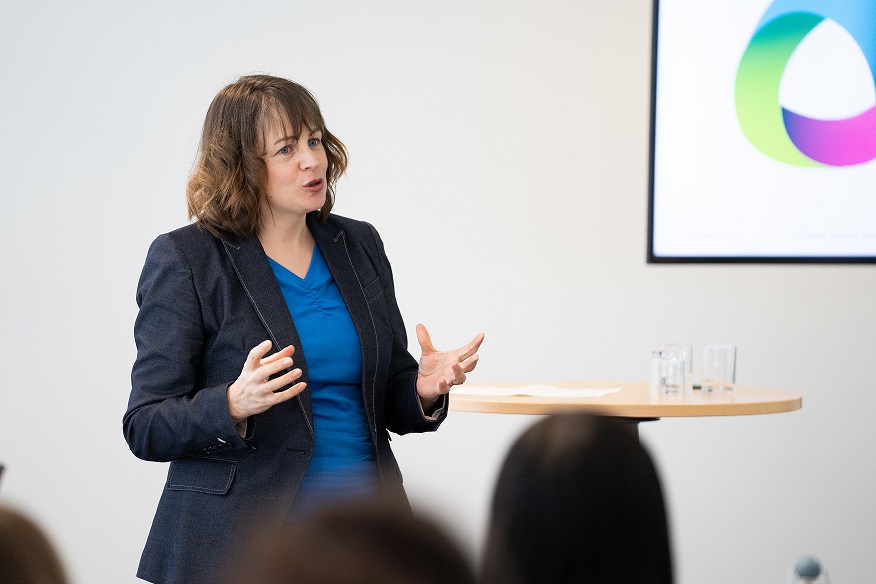The Charter for inclusive entrepreneurship aims to minimise barriers to and enhance outcomes from entrepreneurship for all, especially underrepresented groups.
The University of Nottingham, the East Midlands Chamber, Local Enterprise Partnership D2N2, and the Institute for Small Business and Entrepreneurship are some of the first signatories to the newly launched Charter, demonstrating their commitment to supporting anyone who wants to start a successful and sustainable business.
Dr Lorna Treanor, Associate Professor in Entrepreneurship and Innovation in the Nottingham University Business School is an expert in gender and entrepreneurship, with Research England recently funding her research exploring the local impact of Covid-19 on women entrepreneurs. Dr Treanor's general research and local engagement activity in this area led to the development of today's Charter.
Dr Lorna Treanor said: "It is well-known that entrepreneurship is vital for innovation, job creation, and economic growth which are priorities for the East Midlands. Entrepreneurial activity has been a central focus for unlocking global economic recovery for some time. Despite this, significant disparities persist in relation to participation, access to finance, business growth and returns."

Under-represented social groups, such as women, ethnic minorities, young people, migrants and people experiencing disabilities face distinctive barriers to entrepreneurship. For example, less than 1p of every £1 invested in the UK in 2017 was invested in all women-owned businesses; Black women face even greater barriers when trying to access such finance, receiving only 0.02p per £1 of total investment finance over a ten year period in the UK.
Dr Treanor continued: "Inclusive entrepreneurship can be enabled through a partnership approach by developing a joined-up regional ecosystem of individuals, organisations, agencies, and enterprises committed to supporting greater equality of opportunity and outcomes."
Shari Leigh, Founder of the Black Business Network, said: "Black Business Network is honoured to be joining the Charter as a signatory to this ecosystem. We strongly believe to facilitate growth and changed outcomes for under-represented entrepreneurs, that organisations, networks and resource hubs need to work together to create a pipeline that supports and empowers entrepreneurs through every stage of their journey.
"The charter is a fantastic model to organise this for the East Midlands, and one we will be working to replicate across the country. We look forward to sharing the opportunities and access showcased by the Charter with the entrepreneurs and business owners in our network and championing its growth where we can."

The university is very proud of the work undertaken by Dr Treanor and colleagues into highlighting and supporting underrepresented social groups. We are delighted to be a signatory to the Charter, which will be a very valuable tool in accelerating our work in Equality, Diversity and Inclusion at the university.
The Charter outlines the core principles for implementing and supporting an inclusive entrepreneurship ecosystem in East Midlands across five key areas:
- Promoting diverse role models across the enterprise ecosystem
- Delivering inclusive enterprise support
- Enabling lifelong learning of entrepreneurship education
- Ensuring equal access to enterprise finance
- Implementing measurable targets for inclusive enterprise policy and procurement Practices.
Signatories to the East Midlands Charter for inclusive entrepreneurship will:
- Commit to implementing the principles of the Charter
- Visibly display their commitment to the Charter on their websites and promotional material where relevant
- Actively promote the Charter within their own supply chain and encourage suppliers and/or clients to adopt the principles of the Charter, where appropriate
- Recruit diverse workforces to ensure diversity across gender, ethnicity, age and ability/disability among their workforce and/or procured service providers where appropriate
- Ensure staff are aware of gender, race, disability and other potential barriers to service uptake and that such considerations are factored into service delivery, design, promotion and practical arrangements
- Ensure staff undertake appropriate EDI training in line with good practice.






